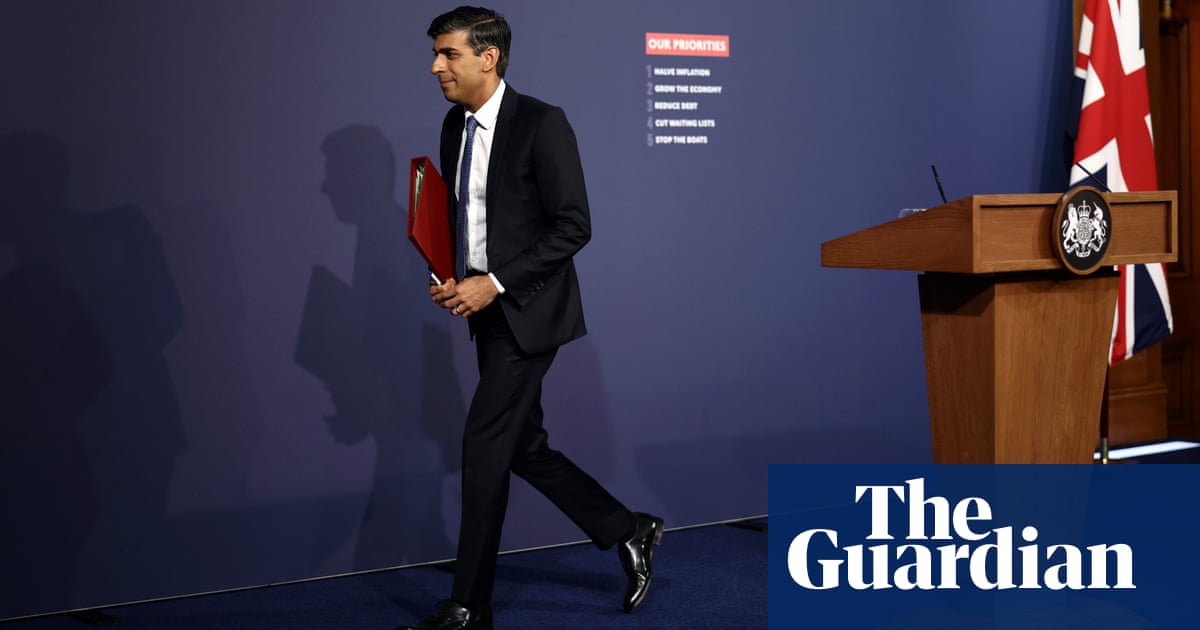
Downing Street is reportedly holding talks about making the scrapping of inheritance tax (IHT) part of its manifesto pledge in an attempt to win over votes in the next general election.
No 10 is discussing whether to make abolishing the levy a key commitment in its manifesto to try to shore up votes in “blue wall” seats, according to the Times.
Supporters argue the policy could be a gamechanger in the south of England, where the Conservatives are defending constituencies vulnerable to gains from opposition parties, according to the paper.
It said abolishing IHT was being considered as a manifesto pledge, rather than a policy to be implemented next year.
It comes ahead of byelections in Somerset and Frome, Selby and Uxbridge on Thursday.
A source familiar with the discussions told the publication: “It’s about being an aspirational country.
“You work hard, play hard and pass on your wealth. It’s a live discussion. Even though most people don’t pay inheritance tax it polls incredibly well. It would be a totemic offer.”
The Conservative party continues to trail Labour in the polls amid the cost of living crisis.
The wider economic challenges facing the chancellor and prime minister were also illustrated by official figures showing the UK economy contracted in May.
Rishi Sunak made halving inflation by the end of the year one of the five key ambitions for his leadership, and the chancellor, Jeremy Hunt, has signalled this target will be prioritised over tax cuts.
The rate of IHT is currently 40% for estates worth more than £325,000, which is charged on the portion that is above the threshold. But estates of spouses and civil partners can pass on up to £1m without any inheritance tax liability.
Some have argued abolishing IHT during a cost of living crisis should not be a government priority, while experts have suggested an overhaul of IHT would be the more sensible option.
Paul Johnson, the director of the Institute for Fiscal Studies (IFS), has in the past called for a reform of IHT, tweeting: “It is genuinely unfair. The very wealthy pay an average rate half or less (than) that paid by the moderately wealthy. If all you leave is the family house it’s hard to avoid. If you have millions it is absurdly easy to avoid.”
Johnson told Sky News that it was “not terribly fair the way it works at the moment” and was of “benefit to people much better off than the average”.
“There is a serious criticism of inheritance tax, which is it really doesn’t work very well for the seriously wealthy,” he said.
“The government’s own Office of Tax Simplification a few years ago put out a report showing that the effective rate of inheritance tax on estates of more than £10m was only half the effective rate on estates of £2m. The reason for that is if you’ve got lots of money outside of the family home it’s really not very hard at all to avoid significant amounts of inheritance tax. If, like most of us, most of your wealth is tied up in the family home then it’s really very difficult to avoid.”
This latest discussion of IHT comes after a recent campaign by more than 50 Tory MPs and the Daily Telegraph called for it to be abolished.
In an article for the paper, the former chancellor, Nadhim Zahawi, who was sacked as Tory party chair over his own tax affairs, said the tax was “morally wrong” and a “spectre that haunts us alongside death”.
He added that abolishing IHT before the next general election would show that the government “backs families in their desire to pass on their hard-earned savings to the next generation”.
A Treasury spokesperson said: “The vast majority of estates do not pay inheritance tax – more than 93% of estates are forecast to have zero inheritance tax liability in the coming years – however, the tax raises more than £7bn a year to help fund public services millions of us rely on daily.”
They said they would not speculate on tax changes “outside of a fiscal event” but added that all taxes were kept “under review”.












